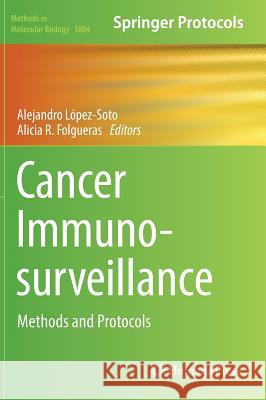Cancer Immunosurveillance: Methods and Protocols » książka
topmenu
Cancer Immunosurveillance: Methods and Protocols
ISBN-13: 9781493988846 / Angielski / Twarda / 2018 / 363 str.
Kategorie BISAC:
Wydawca:
Springer
Seria wydawnicza:
Język:
Angielski
ISBN-13:
9781493988846
Rok wydania:
2018
Wydanie:
2019
Ilość stron:
363
Waga:
0.87 kg
Wymiary:
25.4 x 17.78 x 2.24
Oprawa:
Twarda
Wolumenów:
01
Dodatkowe informacje:
Wydanie ilustrowane











